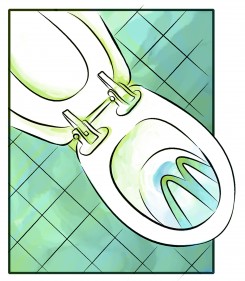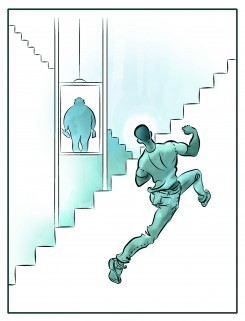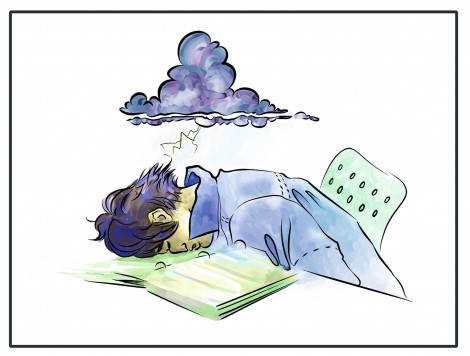You’re coasting on that ready-to-study vibe when the inevitable happens: various assignments and tests pile up, crushing hopes and dreams beneath immovable mountains of academic oppression — basically, a repeat of last term. Here are a few quick tips that can help you escape the university rut.
Diet
From the concept of the “freshman 15” to general student disdain of meal plans, healthy eating tends to be pushed aside to make way for more seemingly important tasks like studying. Breakfast is often a prime candidate to be skipped, with early classes and long commutes eating up all our morning hours. However, the first meal of the day is widely considered to be the most important.
Dr. Andy Dicks, who serves as a lab instructor for various U of T chemistry courses, says that he’s “seen people in the lab pass out because they haven’t had breakfast.”
“I think if you skip breakfast, you’re more likely to overindulge in lunch and dinner,” says Dr. Roy Baker, a biochemistry professor here at U of T. “And after all, ‘break-fast,’ the term, means breaking fast, which means that theoretically you haven’t been eating for 8–10 hours and your body is low on a number of fairly important things.”
When asked what constitutes a good breakfast, Dr. Baker stated that it is important to avoid simple carbs (sweet foods) in order to prevent insulin spikes but that “there are more complex [carbohydrates] you can use for sure, whether it’s wheat or rice…and it’s probably wise to mix those with some source of protein and a little bit of fat just to slow the uptake of sugar.”
Physical health
It is well known that many students don’t get enough exercise. Just last month, a study by researchers at McMaster following 683 Canadian adolescents found that men entering university suffered the steepest decline in physical activity of their entire teenage lives.
Exercise undeniably improves health, but some of its effects are not obvious. For example, a study published in Appetite found that 15-minute walks on a treadmill can cut chocolate consumption in regular eaters by half. Another study, published in Cephalalgia, found that 40 minutes of exercise three times a week was just as effective as the drug topiramate for relieving symptoms in migraine patients.
Dr. Baker feels that “the key is to [exercise] on a daily basis, and there are very few pathologies … that don’t respond to exercise.”
U of T has a variety of athletic facilities available to students, whose membership is prepaid by the tuition fees: squash courts, gyms, tracks, and a pool at the Athletic Centre and Hart House. You’ve paid for it already — why not use it?
Mental health
Stress and mental fatigue are age-old concerns among the student population. Recent research at the School of Nursing at UBC has recognized that students with improved stress management skills are less likely to suffer from depression. When it comes to dealing with the issues of isolation and alienation that inevitably arise in such a big institution as U of T and in such a big city as Toronto, no single strategy works for everyone.
Daniel Dalessandro, a chemistry student at U of T, feels that one way “you can stay healthy at this school is to remember that everyone around you is a human being and they’re all in the same boat as you. A lot of the problems at this school, whether they are stress or tests, are because there’s not enough communication.”
Volunteering at a homework club for elementary school kids is very important to Daniel Jacobs, a third-year EngSci student, who feels that “it’s really relaxing and it puts most problems back in focus.”
Emily Lu, who is in life science, enjoys playing ultimate frisbee to de-stress but finds that “if you think too hard about why you are doing your extracurriculars then they become more of a burden.”
There are numerous outlets available for the relief of stress, not all of them directly involving interaction with people. A recent study by the American Psychological Association has found that various forms of expressive, personal writing such as blogs or diaries can help relieve social anxiety.
The best advice anyone can give is to choose something you love to do and do it. As Amirah Momen, a third year neuroscience student puts it, “Pursue more than just good grades. Get involved in something non-academic that challenges and excites you; the character you end up building will pay back in spades and the fun you have [will] keep you sane.”




